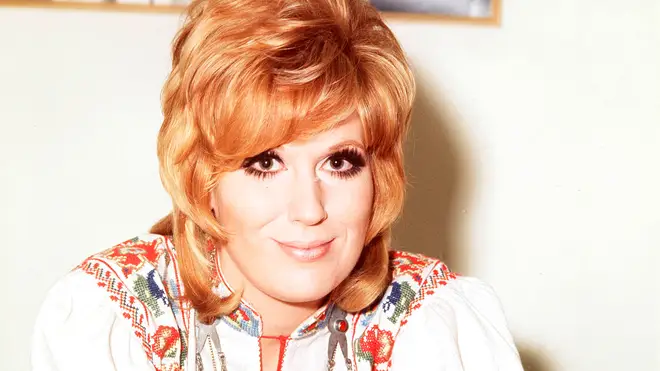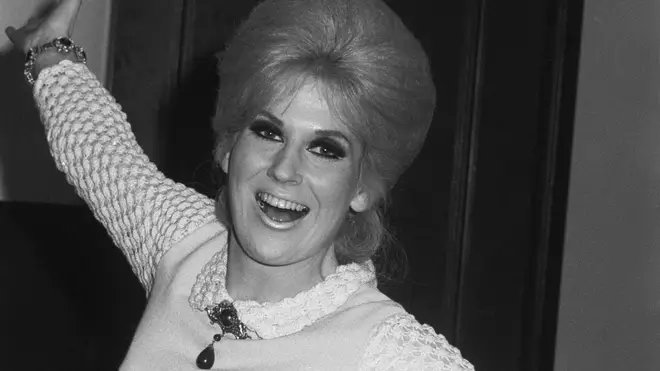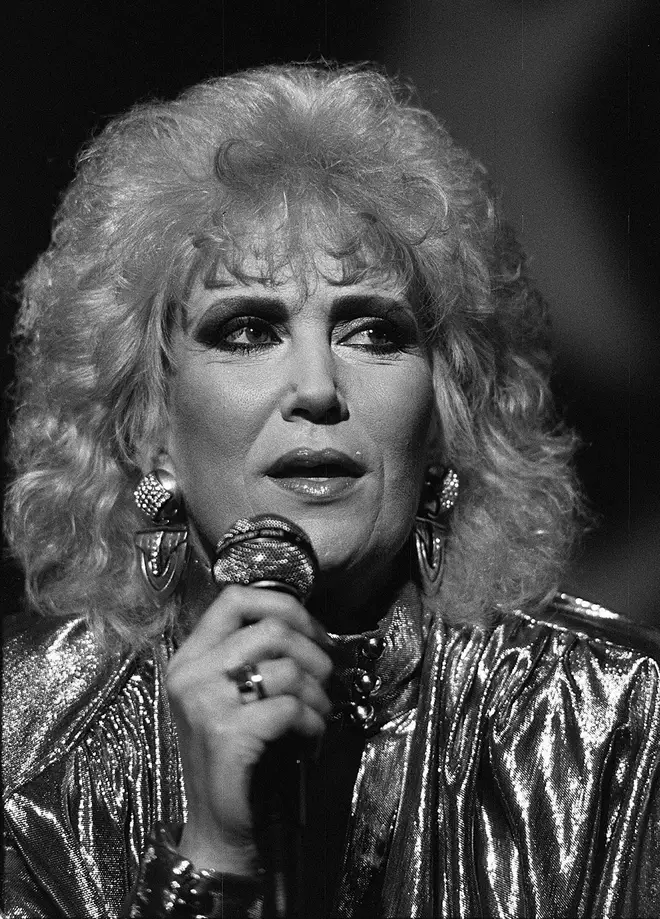Dusty Springfield
Dusty Springfield

Mary Isobel Catherine Bernadette O'Brien OBE, known as Dusty Springfield, was an English singer with a mezzo-soprano sound. A versatile artist, she excelled in blue-eyed soul, pop, and dramatic ballads, incorporating French chanson, country, and jazz. In the 1960s, she became one of the most successful British female performers internationally. Recognized for her distinctive style, including a peroxide blonde bouffant hairstyle and glamorous evening gowns, Dusty Springfield remains an icon of the Swinging Sixties. She left a lasting impact on the music industry with her talent and influential image.
Dusty Springfield, born in West Hampstead, London, into a musical family, honed her singing skills at home. In 1958, she joined The Lana Sisters, her first professional group. Two years later, along with her brother Tom Springfield and Tim Feild, she formed The Springfields. Achieving success with hits like "Island of Dreams" and "Say I Won't Be There," the trio secured two Top 5 UK chart positions in the spring of 1963. Their cover of "Silver Threads and Golden Needles" also gained popularity in the United States in 1962. This marked the beginning of Springfield's remarkable journey in the music industry.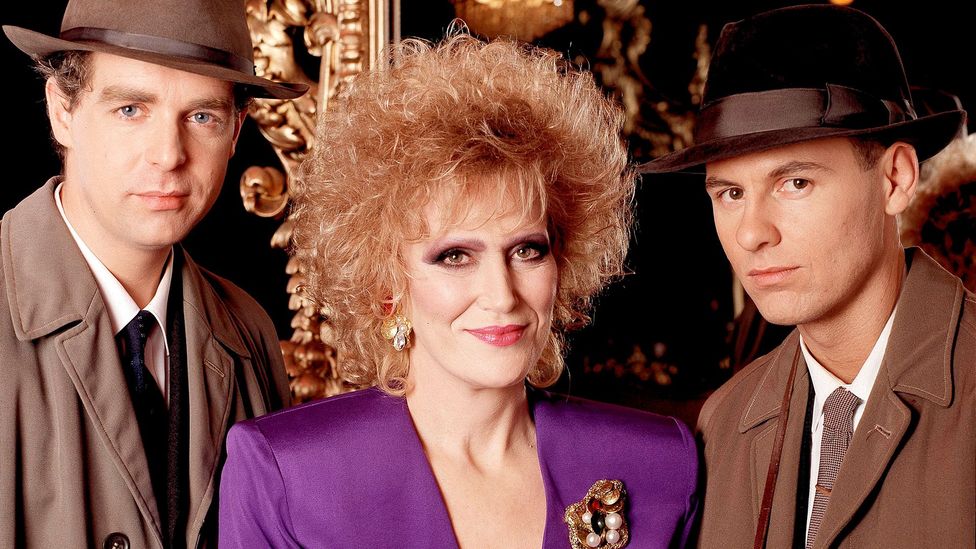
Dusty Springfield's solo career launched in late 1963 with the upbeat pop hit "I Only Want to Be with You," marking the beginning of six transatlantic Top 40 hits in the 1960s. Notable songs include "Stay Awhile" (1964), "All I See Is You" (1966), "I'll Try Anything" (1967), and her signature songs "You Don't Have to Say You Love Me" (1966 UK no. 1/US no. 4) and "Son of a Preacher Man" (1968/69 UK no. 9/US no. 10). The latter is featured on the 1968 album "Dusty in Memphis," a defining work that the US Library of Congress added to the National Recording Registry in March 2020 for its cultural and historical significance.
Between 1964 and 1969, Dusty Springfield achieved significant success in the UK with singles like "I Just Don't Know What to Do with Myself," a notable Bacharach/David cover. However, these songs either failed to chart or were not released in the United States. Some of these include "In the Middle of Nowhere," "Some of Your Lovin'," "Goin' Back," and "I Close My Eyes and Count to Ten." Conversely, she found success in the US (though not in the UK) with hits such as "Wishin' and Hopin'," "The Look of Love," and "The Windmills of Your Mind." This period showcased Springfield's versatility and enduring popularity on both sides of the Atlantic.
From 1971 to 1986, Dusty Springfield faced a period without hits despite releasing five albums (except for a minor 1979 UK chart appearance). However, her collaboration with the UK synth-pop duo Pet Shop Boys in 1987, "What Have I Done to Deserve This?," marked a triumphant return, reaching no. 2 on both the UK singles chart and Billboard's Hot 100. The collaboration continued with two 1989 UK Top 20 hits: "Nothing Has Been Proved" and "In Private." In 1990, Springfield charted with "Reputation," her final entry among the 25 Top 40 UK hits she featured in.
Dusty Springfield was a prominent figure on British television, hosting episodes of the popular 1963–66 music series "Ready Steady Go!" and her own series on the BBC and ITV from 1966 to 1969. In 1966, she topped popularity polls, winning Melody Maker's Best International Vocalist and becoming the first UK singer to lead the New Musical Express readers' poll for Female Singer. Springfield is honored in the National Rhythm & Blues Hall of Fame, the Rock and Roll Hall of Fame, and the UK Music Hall of Fame. Recognized internationally, she is celebrated as one of the greatest female popular singers of all time.
Dusty Springfield was a prominent figure on British television, presenting numerous episodes of the influential 1963–66 music series Ready Steady Go! She also hosted her own series on the BBC and ITV from 1966 to 1969. In 1966, Springfield dominated popularity polls, winning Melody Maker's Best International Vocalist and becoming the first UK singer to lead the New Musical Express readers' poll for Female Singer. She holds a place in the National Rhythm & Blues Hall of Fame, the Rock and Roll Hall of Fame, and the UK Music Hall of Fame. Internationally acclaimed, Springfield is celebrated as one of the finest female popular singers of all time.
Dusty Springfield was born as Mary Isobel Catherine Bernadette O'Brien on April 16, 1939, in West Hampstead. She was the second child of Gerard Anthony 'OB' O'Brien (1904–1979) and Catherine Anne 'Kay' O'Brien (née Ryle; 1900–1974), both Irish immigrants. Dusty's elder brother, Dionysius Patrick O'Brien (2 July 1934 – 27 July 2022), later became known as Tom Springfield. Her father, raised in British India, worked as a tax accountant and consultant. Dusty's mother hailed from an Irish family originally from Tralee, County Kerry, which included several journalists.
Dusty Springfield spent her early years in High Wycombe, Buckinghamshire, until the early 1950s, and later resided in Ealing in west London. She attended St Anne's Convent School, Northfields, a traditional all-girl school. Despite a comfortable middle-class upbringing, the family faced dysfunction due to her father's perfectionism and her mother's frustrations, leading to occasional food-throwing incidents. Both Dusty and her brother were prone to such behavior as adults. She earned the nickname "Dusty" for playing football with boys in the street and was described as a tomboy.
Dusty Springfield grew up in a family that had a deep love for music. Her father would tap out rhythms on the back of her hand, encouraging her to guess the musical piece. She was exposed to a diverse range of music, including George Gershwin, Rodgers and Hart, Rodgers and Hammerstein, Cole Porter, Count Basie, Duke Ellington, and Glenn Miller. A fan of American jazz and vocalists like Peggy Lee and Jo Stafford, Dusty aspired to emulate their sounds. At the age of 12, she recorded herself singing the Irving Berlin song "When the Midnight Choo-Choo Leaves for Alabam" at a record shop in Ealing.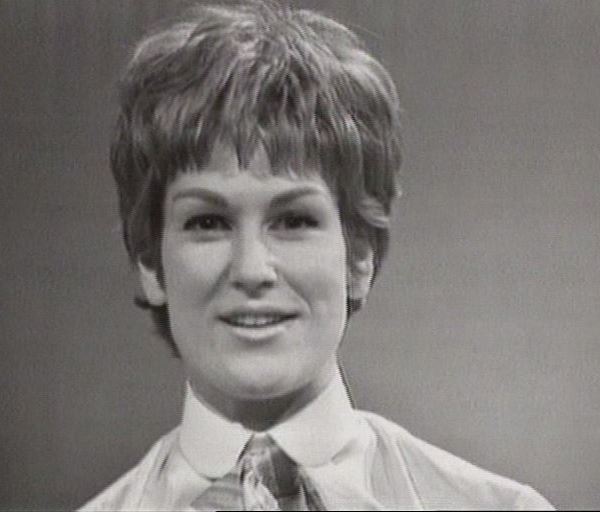
After leaving school, Dusty Springfield and her brother Tom sang together in local folk clubs. In 1957, they collaborated at holiday camps. The following year, Dusty responded to an advertisement in The Stage to join The Lana Sisters, described as an "established sister act," alongside Iris 'Riss' Long (also known as Riss Lana, Riss Chantelle) and Lynne Abrams (a.k.a. Lynne Lana), who were not actually sisters. Dusty adopted the stage name "Shann Lana," transformed her appearance by cutting her hair, losing the glasses, and experimenting with makeup and fashion to fit the 'sisters' image. As part of the pop vocal trio, she honed her skills in harmonizing and microphone technique, recording, performing on TV, and playing live shows in the United Kingdom and at United States Air Force bases in continental Europe.
In 1960, Dusty Springfield left the Lana Sisters and formed the folk-pop trio, The Springfields, with her brother Tom and Reshad Feild (both ex-The Kensington Squares). Mike Hurst replaced Reshad Feild in 1962. The trio, adopting the stage names Dusty, Tom, and Tim Springfield, chose their name while rehearsing in a field in Somerset during springtime.
To create an authentic US album, the group traveled to Nashville, Tennessee, to record "Folk Songs from the Hills." During this time, Dusty's musical influences shifted, particularly after hearing the Exciters' "Tell Him" in New York City, moving her towards pop rooted in rhythm and blues.
The Springfields achieved success, voted Top British Vocal Group in the New Musical Express poll in 1961 and 1962. Their biggest hits came in 1963 with "Island of Dreams" and "Say I Won't Be There," both peaking at number five within five weeks of each other. The group appeared on the hip ITV music series Ready Steady Go!, which Dusty Springfield often presented in its earlier days.
Dusty Springfield left the band after their final concert in October 1963. Following The Springfields' breakup, Tom continued songwriting and producing for other artists, including The Seekers. He wrote additional songs for Dusty, most notably her 1964 UK hit "Losing You," and pursued his solo career.
Dusty Springfield released her first solo single, "I Only Want to Be with You," in November 1963. Co-written and arranged by Ivor Raymonde, the record was produced by Johnny Franz in a style reminiscent of Phil Spector's "Wall of Sound." The single featured rhythm-and-blues elements such as horn sections, backing singers, double-tracked vocals, and strings, reflecting Springfield's influences like the Exciters and the Shirelles.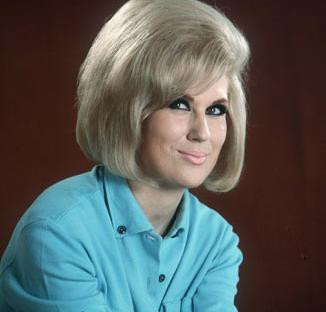
In January 1964, "I Only Want to Be with You" peaked at No. 4 in the UK charts during an 18-week run. New York disc jockey "Dandy" Dan Daniel of WMCA nominated the single as a "Sure Shot," anticipating its chart success before Beatlemania took over. Debuting on Billboard's Hot 100 in late January 1964, the song positioned Dusty Springfield at the forefront of the British Invasion. It peaked at No. 12 during its ten-week chart run and ranked 48 in the year-end Top 100 of New York radio station WABC.
The debut of the BBC's Top of the Pops in 1964 featured "I Only Want to Be with You" as the show's kick-off record on January 1. The single earned gold certification in the UK, and its B-side, "Once Upon a Time," was written by Springfield.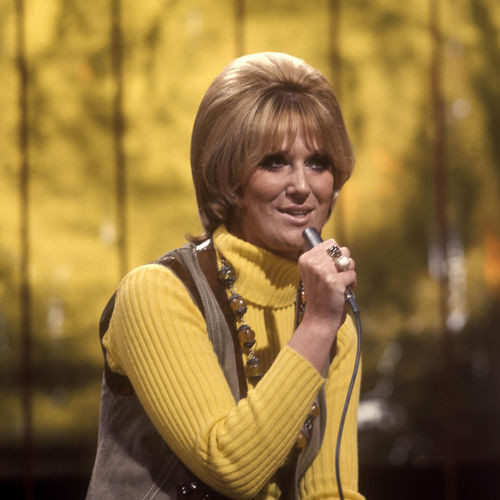
Dusty Springfield's debut solo album, "A Girl Called Dusty," featuring mostly covers of her favorite songs, was released on April 17, 1964, in the UK (but not in America). The tracks included "Mama Said," "When the Lovelight Starts Shining Through His Eyes," "You Don't Own Me," and "Twenty Four Hours from Tulsa." In May 1964, the album reached No. 6 in the UK, one of only two of her Top Ten non-hits albums.
Following "I Only Want to Be with You," Springfield charted with five more singles in 1964. Among them, "Stay Awhile" registered as a transatlantic success (UK No. 13/US No. 38), with its B-side, "Somethin' Special," written by Springfield, praised as "a first-rate Springfield original" by AllMusic's Richie Unterberger. Springfield, however, expressed her reluctance towards songwriting, stating, "I don't really see myself as a songwriter... I just don't get any good ideas, and the ones I do get are pinched from other records. The only reason I write is for the money – oh mercenary creature!"
The highest-charting of Springfield's 1964 releases were Burt Bacharach-Hal David songs: "Wishin' and Hopin'" – a US No. 6 hit featured on "A Girl Called Dusty" – and "I Just Don't Know What to Do with Myself." The latter peaked at No. 3 on the UK singles chart in July. The dramatic and emotive "I Just Don't Know What to Do with Myself" set the standard for much of her later material.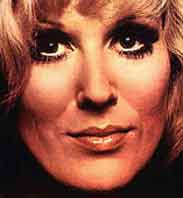
In 1965, Dusty Springfield achieved success with three hit singles that reached the UK Top 40: "Your Hurtin' Kinda Love" (No. 37), "In the Middle of Nowhere" (No. 8), and the Gerry Goffin/Carole King-penned "Some of Your Lovin'" (No. 8). However, none of these tracks were included on her next UK album, recorded with The Echoes, titled "Ev'rything's Coming Up Dusty." Released in October 1965, the LP featured songs by Leslie Bricusse, Anthony Newley, Rod Argent, Randy Newman, and a cover of the traditional Mexican song "La Bamba." In November 1965, the album peaked at No. 6 on the UK chart.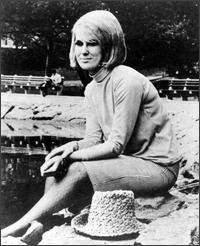
During 1965, Dusty Springfield's only appearance on Billboard's Hot 100 was with "Losing You," which stalled at No. 91.
From January 28 to 30, 1965, Dusty Springfield participated in the Italian Song Festival in San Remo, where she reached the semi-final with "Tu che ne sai?" (English: "What Do You Know?") but failed to qualify for the final. During the competition, she heard the song "Io Che Non Vivo (Senza Te)," performed by one of its composers, Pino Donaggio, and separately by US country music singer Jody Miller. An English-language version titled "You Don't Have to Say You Love Me" would feature newly written lyrics by Springfield's friend (and future manager) Vicki Wickham and another future manager, Simon Napier-Bell.

Springfield's dramatic recording of the ballad was released in March 1966 and reached number one in the UK in its fifth week on the singles chart. Success also followed in the US, where it reached No. 4 on Billboard's Hot 100 in July, ranking 21 for the year. Springfield humorously referred to it as "good old schmaltz," and it became her signature song. In 1967, she was nominated for the Best Contemporary (R&R) Solo Vocal Performance – Male or Female award at the 9th Annual Grammy Awards, ultimately losing to Paul McCartney for "Eleanor Rigby." In 1999, "You Don't Have to Say You Love Me" was featured in an all-time Top 100 of songs as voted for by listeners of BBC Radio 2.
During this period, Dusty Springfield gained recognition for her love of Motown music and played a crucial role in introducing the Motown sound to a broader UK audience. She achieved this through her covers of Motown songs and by facilitating the first UK TV appearance for iconic Motown acts such as the Temptations, the Supremes, Martha & The Vandellas, the Miracles, and Stevie Wonder. This special edition of the 1963–66 British TV music series Ready Steady Go! was produced by Vicki Wickham.
Titled "The Sound of Motown," the show was broadcast by Associated-Rediffusion/ITV on April 28, 1965, with Dusty Springfield opening each half, accompanied by Martha and the Vandellas and Motown's in-house band, the Funk Brothers. The associated touring Tamla-Motown Revue, featuring the Supremes, the Miracles, and Stevie Wonder, had started in London in March. According to the Supremes' Mary Wilson, the tour was initially a flop in terms of attendance, but the artists gave their best performances regardless. Wickham, a fan of Motown, booked the Motown acts for the Ready Steady Go! special and enlisted Dusty Springfield to host it.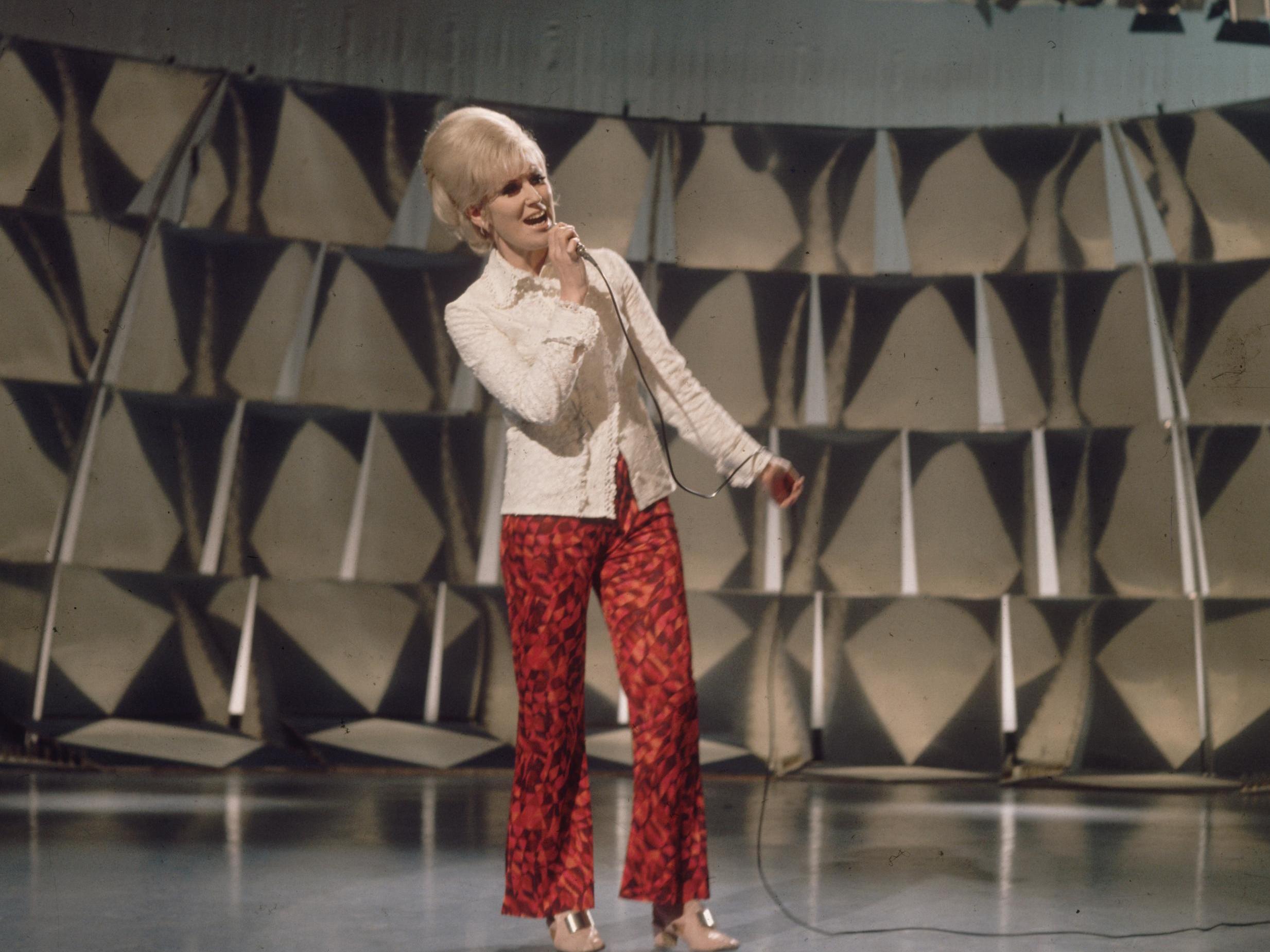
References
- *Jazz * Northern SoulDusty Springfield queen of blue-eyed-soul Retrieved 12 April 2022
- a b "No. 55354". The London Gazette (1st supplement). 31 December 1998. p. 12.
- a b c Randall, (2009), p. 51.
- ^ "Dusty Springfield obituary". The Guardian. 4 March 1999. Retrieved 10 May 2020.
- ^ O'Brien, p. 3.
- ^ Valentine and Wickham, p. 20.
- a b c Gulla, p. 357.
- ^ Valentine and Wickham, p. 21.
- ^ Valentine and Wickham, p. 23.

